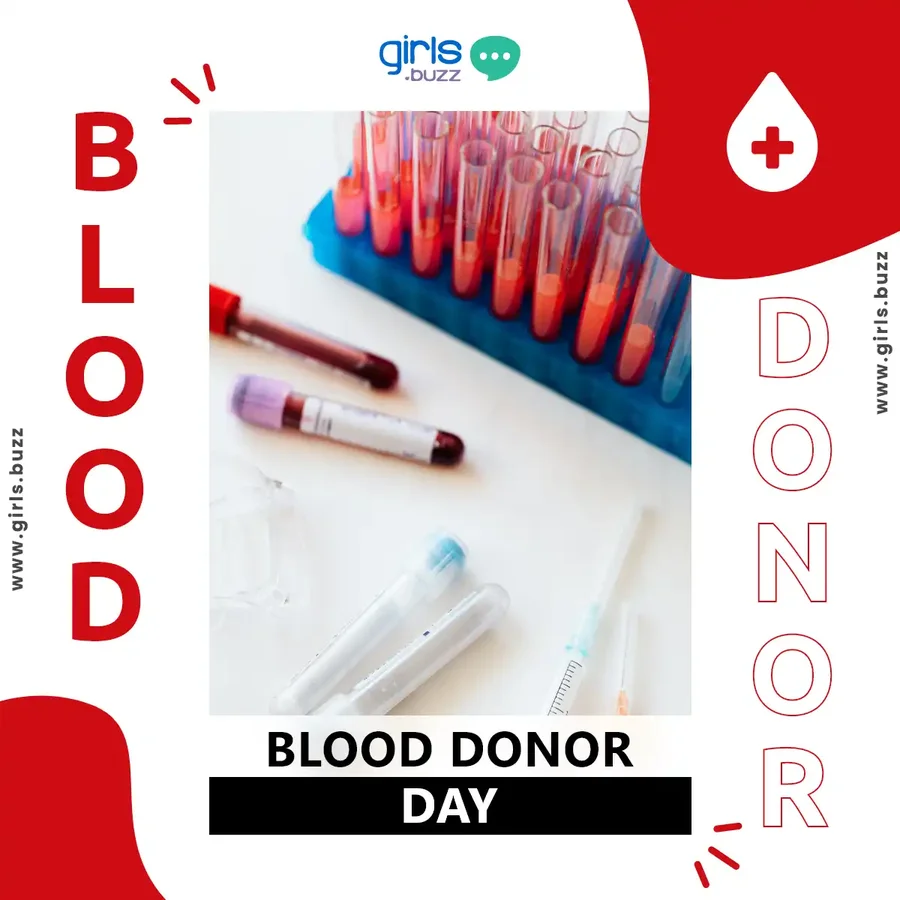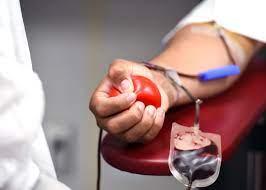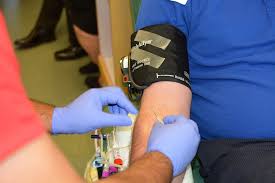World blood donor's day 2022
5 minuteRead

By Samyati Mohanty
The World Blood Donor Day tagline for 2022 is "Donating blood is an act of togetherness." "Join the effort and save lives" is a public awareness campaign on the importance of voluntary blood donations in saving lives and developing community ties. The gender gap that is established is an important factor that we often overlook. On the one hand, men are deemed more suitable (despite the fact that this is supported by biological evidence), but socially, men are more encouraged to execute this responsibility, whilst women are denied of this knowledge. Women must comprehend and discover their true motivations for donating blood. There are various biological health features that one should follow.
What is it, exactly?
Donating blood is essential to replenishing our nation's blood supply and preserving the lives of critically ill or injured individuals who need blood transfusions.Nearly five million Americans require blood transfusions each year. In the United States, an estimated 43,000 pints (or units) of donated blood are used every day, and one out of every seven persons admitted to the hospital requires blood. Women are vital to the country's blood supply because their role as caregivers communicates the message that donating blood is a good idea. However, if girls are still menstruating, they are more likely than men to be temporarily barred from donating due to low hematocrit, or red blood cell levels.
Blood Scarcity: Why Is It Important to Donate Blood?
Unfortunately, the country's blood supply is sometimes on the verge of running out. When supply does not keep up with demand, blood shortages occur on a regular basis. However, if 3 million units more of the Indian population donated blood, these shortages would be eliminated for the foreseeable future, as per WHO 2012 stats.
Blood shortages occur for a variety of causes, including generational variations, habits linked with blood donation, and rising demand for blood transfusions. Donating blood is made as simple and convenient as possible by blood banks. Despite this, there are several limits on who is eligible to give blood, with an estimation only 1 percent of the Indian population is able to do so.
What is the blood donation procedure?
Donating blood, on the other hand, is a relatively simple and fully safe process that takes less than an hour and requires little preparation. There is a low risk of an adverse reaction while donating blood, and you can donate whole blood every 56 days and blood platelets every three days, up to 24 times a year. However, as a result of the surgery, some patients may become dizzy or faint. In general, you can avoid this by having a substantial meal and drinking lots of water (without caffeine) before the donation.
Is There a Safe Blood Supply?
Today's blood supply is extremely safe, with the chance of contracting a blood-borne disease through a transfusion being quite low. Blood sterilisation is being researched to make the blood supply even safer. Other risks of transfusions include receiving the wrong blood type and catching a rare and potentially fatal lung disease.
The Blood Transfusion Procedure
Blood platelets, which help blood clot, red cells, which carry oxygen, and plasma, the watery fluid that transports cells and nutrients and restores blood volume, are all examples of blood components that can be transfused during a transfusion.
Why do women donate blood at a lower rate than men?
Young men should continue to register as blood donors because they are less likely to be able to donate as they get older. Men are extremely important donors because they make up the bulk of long-term donors. They are more likely than women to have a high iron level, allowing them to give more regularly. Men's blood is also easier to use for platelets, which are used to treat persons who are bleeding profusely in an emergency. Women, on the other hand, frequently take vacations from donating owing to pregnancy. Furthermore, there is a gender divide, with men considering women to be week for these purposes. The true cause, however, is the monthly menstruation cycle, which women are advised not to participate in by health professionals. During this period, women's hormones are active, and they experience a variety of health issues such as nausea, cramps, bloating, headaches, and a variety of other physical and emotional discomforts.
Is it beneficial for a woman to give blood?
It is also important for women to donate blood as caretakers because it sends a message to other family members and friends that donating blood is safe, painless, and appropriate. There is no chance of catching any blood-borne infections when you donate blood. Every 56 days, you can donate blood. During and three days following their menstruation, women are not allowed to give blood. They can't give blood when pregnant or nursing, and they can't give blood for at least six months after giving birth.
So, regardless of one's gender, make a list of the eligibility criteria that one can follow.
An individual's eligibility
There are various factors that affect whether or not a person is eligible to give blood. Blood banks must follow the guidelines set forth by the Ministry of Health of the Government of India for donor screening.
Vital signs and overall health:
- The donor must be in good physical condition and free of communicable infections.
- Age and weight should be between 18 and 65 years old, with a minimum weight of 50 kg.
- Pulse rate should be between 50 and 100 beats per minute, with no abnormalities.
- A minimum of 12.5 g/dL in haemoglobin.
- Diastolic blood pressure is 50–100 mm Hg, and systolic blood pressure is 100–180 mm Hg.
- The body temperature should be normal, with an oral temperature of no more than 37.5 degrees Celsius.
- More than three months should pass between consecutive blood donations.
Individuals with the following conditions are not eligible to donate blood:
- If one was diagnosed with HIV.
- If Afflictions such as cardiac arrest, hypertension, blood pressure, malignancy, epilepsy, kidney disease, and diabetes are common.
- Patients with active asthma symptoms, as well as those with severe asthma.
- In the past, if someone had fits, TB, and allergic reactions.
- Women who are pregnant or breastfeeding.
- In the previous 24 hours, you consumed alcohol.
- In the previous month, you were immunised.
- In the previous month, you had extensive dental procedures or general surgery.
- In the last six months, you've had an ear/body piercing or a tattoo.
- In the previous 6 months, you were treated for rabies or had the Hepatitis B vaccine.
- Women who have experienced a miscarriage in the previous six months.
So, being a woman let’s know our rights and also find out the ways in which we can unlearn things, and do the appropriate thing inorder to make a healthy society.
Let’s encourage women to donate blood!
Write, Record and Answer! Consume Unlimited Content! All you need to do is sign in and its absolutely free!
Continue with one click!!By signing up, you agree to our Terms and Conditions and Privacy Policy.















